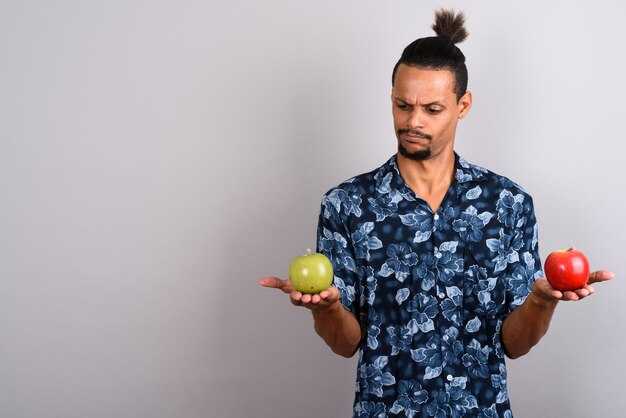Okay — today we’re going to explore how to tell if someone might be the right long-term partner, because relationships are complicated. How do you know whether you should marry someone or have children with them? Marriage is major, and most people don’t enter it expecting to divorce, yet a large portion do. That reality often feels distant until it isn’t — nobody imagines it will happen to them until it does. If there’s one takeaway, it’s this: you can greatly increase the chances of a satisfying long-term relationship by two things — choosing the right kind of person and also becoming the kind of person a healthy relationship needs.
First, a quick caveat: this isn’t about perfection, it’s about effort and direction. Nobody is flawless, and you might hear things here and realize you’ve been missing the mark — that’s fine. Ignorance stops being an excuse once you learn better, and the guidance here can markedly reduce the likelihood of getting trapped in relationships dominated by narcissism or selfishness. It won’t guarantee a flawless partnership, but it equips you with the fundamentals to create the kind of relationship you deserve. These conversations are tough. Healthy conflict resolution requires humility, self-awareness, vulnerability and mutual respect from both partners. If one or both people refuse emotional maturity, the relationship will suffer — and it’s hard to change someone who won’t change. If you discover habits that harm your partner, own them and proactively address them; lead with intention. Relationships that thrive usually have two people willing to do the difficult work.
Second caveat: don’t buy into the myth of “the one.” You can believe in fate or divine timing if you want, but thinking there’s a single soulmate who will magically heal all wounds and fix every issue is dangerous. That belief can encourage waiting for someone to “complete” you and foster codependency: if your worth depends on another person’s validation, you’re setting yourself up for trouble. Great relationships aren’t accidents — they are built. The relationship you have with yourself strongly influences every intimate relationship you enter. Early-stage chemistry can blind us to red flags; we often avoid discussing non-negotiables or boundaries because of the rush of infatuation. Enjoy the excitement, but stay clear-headed: people often don’t present their full selves at the start, and neither do you. You can both fall in love while still talking candidly about needs and walking away when things become toxic.
So, what qualities should you prioritize when considering a serious relationship or marriage? And remember: don’t demand traits from your partner that you aren’t willing to embody yourself. Hypocrisy won’t build a stable partnership.
1) Safety above all. Without a foundation of safety, everything else falls apart. Intimacy requires feeling safe. Playfulness, friendship, vulnerability — they all depend on it. That means zero tolerance for physical violence, aggressive or controlling behavior, yelling, belittling language, name-calling or dominance. Words and actions that harm don’t build trust or love; they erode them. If a partner has demonstrated unsafe behavior, you cannot fix them by being different in how you speak to them. You can empathize with someone’s past trauma, but you must also hold them accountable for destructive behaviors — and if you don’t feel safe, that’s a huge red flag. For those trapped in trauma bonds or abusive situations, step back, secure your safety, and seek professional support. Love alone will not sustain a relationship if there is persistent harm. It’s not enough to love each other; how you love each other — with kindness, respect and consideration — is what matters. Ask: do you respect one another? Do you act with kindness during conflict? Do you intentionally prioritize each other or add to chaos? True acceptance means not trying to constantly change your partner. Remember, toxic relationships can still contain a bond; affection doesn’t negate betrayal. If unhealthy patterns exist, be prepared to let the relationship end for your wellbeing.
2) Build safety through trust, respect and kindness. Choose someone reliable — someone you can count on to have your back, to follow through, to own mistakes and to apologize when necessary. Trust can be shattered by large breaches like infidelity or violence, but it also dissolves slowly through passive-aggressive behavior, the silent treatment, dismissiveness, or invalidating someone’s feelings. Trust collapses when vulnerability is punished. When a partner makes you feel like your emotions are a burden, emotional withdrawal follows as a form of self-protection. Prevent this by checking in with each other regularly and prioritizing mutual respect. Respect shows up when someone asks about your boundaries, doesn’t pressure you sexually, listens without interrupting, and treats your needs as important. Respect is also expressed through attention, appreciation and affirmation. Kindness matters, too: observe whether they consistently treat others with warmth, especially people who can’t benefit them. Selflessness in a relationship isn’t about being walked on — it can coexist with healthy boundaries — it’s about intentionally seeking to meet your partner’s needs.
One key predictor of relationship success is mutual admiration and responsiveness to bids for connection. Couples that survive and thrive notice and respond to each other’s attempts to connect — the small invitations that often go unrecognized. Failing to notice those moments builds a pattern of rejection that can destroy intimacy. Marriages often falter in the conversations partners never have; paying attention to bids for connection and being willing to say “I’m trying to connect” or to validate a partner’s feelings makes a huge difference. If your partner asks for connection or shares vulnerability, can you accept and validate them without defensiveness?
3) Honesty and integrity. Seek a partner who is truthful, owns up to mistakes, and demonstrates personal accountability. Dishonesty can be subtle — people may seem genuine at first but reveal otherwise over time. Give relationships some time and trust your intuition: actions will ultimately reveal character. Emotional awareness is essential; someone who reflects on their feelings and admits struggles is more likely to grow. Courageous honesty isn’t the same as lashing out in anger and calling it “truth.” True honesty comes with humility and ownership — not blame. Integrity means not keeping secrets, accepting responsibility, and initiating repairs after disconnection. Repairing is intentional: acknowledge what went wrong, apologize sincerely without excuses, ask how your actions impacted your partner, validate their hurt, and make a plan to do better. Keep short accounts — check in weekly: what went well? When did you feel loved and prioritized? Where did you feel dismissed? When partners habitually hold this kind of space for each other, resentment has less room to grow. The challenge is that few couples do this consistently, but the ones who do often build lasting bonds.
4) Shared values and practical compatibility. Compatibility matters. Love alone doesn’t erase fundamental differences about religion, politics, children, finances, substance use, division of labor, or lifestyle priorities. These are the topics that spark recurrent fights once infatuation fades. Discuss expectations — domestic chores, who works, how much time you spend together versus apart, family planning — before these issues become chronic sources of conflict. Small, practical mismatches add up. If one person treasures gratitude and optimism while the other is perpetually negative, the mismatch will be draining. When it comes to children, for example, mismatched desires (one wants none, the other wants kids) can become explosive later. Be clear about boundaries too: if pornography feels like cheating to your partner, continuing it violates integrity. You must choose whether to commit fully or find someone whose values align with yours.
5) Empathy. The ability to understand and emotionally resonate with your partner is fundamental. Empathy means seeing the world from their perspective and caring enough to be curious about their inner experience. Communication isn’t the ultimate goal — empathy is. Two people can talk endlessly yet remain unconnected if neither tries to understand the other. Validation and listening are the building blocks of effective communication. Get rid of toxic communication patterns — passive-aggression, contempt, stonewalling, silent treatments, accusations and dismissiveness — because they only widen the gap. You can still experience anger, but attacking the other person shuts down the possibility of repair. Learn to pause during heated moments and agree on ways to cool off and revisit the issue calmly. Practice listening without interruption, owning your feelings, and being a safe place for each other’s vulnerability. If a partner refuses empathy or emotional engagement, set boundaries, seek counseling, and recognize you cannot coerce someone into being emotionally mature.
6) A willingness to grow, heal and develop emotional maturity. Before getting serious, ask whether your partner is open to seeking help — would they go to counseling if things became rocky? Too many people refuse therapy because they see problems as the other person’s fault, which damages relationships. Many people carry insecure attachment patterns from childhood — anxious, avoidant, or disorganized styles — that show up most clearly during conflict. These patterns can produce clinginess, people-pleasing, withdrawal, emotional distance, or fear of intimacy. Healing requires recognizing these tendencies, understanding why they exist, and doing the inner work to change them. That includes learning to be emotionally available, identifying and articulating needs, advocating for them kindly, and setting boundaries. Growth isn’t instantaneous; it’s a continuous journey. Choose a partner who is at least somewhat committed to walking that path with you because vulnerability always involves risk: to love fully you must risk pain. When someone takes off their armor for you, learn why they needed it and show them they can be safe with you.
7) Friendship. Ultimately, a great romantic relationship resembles a deep friendship. A partner who is also your friend offers safety, laughter, shared values, and mutual support. Friendships that endure are resilient; they accept imperfections, forgive, and call each other out in ways that come from care rather than power. In a healthy partnership, influence is mutual, not a competition. Celebrate each other, grieve together, and start from a place of assuming good intent while still addressing hurt. Friendships don’t mean there’s never conflict; they mean you have trust and a desire to protect the connection. If you want a lasting partnership, cultivate those friendship qualities in yourself and look for them in others.
Who you choose to be with matters greatly. Who you decide to marry matters even more. This is your chance to be deliberate. Don’t settle for the bare minimum because it’s familiar; you deserve respect, kindness, and emotional safety. You also don’t need absolute certainty — nobody is 100% sure before a major commitment — but look for the presence of these core qualities: safety, trust, respect, kindness, honesty, empathy, shared values, a growth mindset, and friendship. If both people are intentional, willing to prioritize one another, self-reflective, and sacrificial in healthy ways, a lasting partnership is possible. Schedule regular check-ins, practice the hard conversations with curiosity and calm, heal what needs healing, and remember you’re on the same team. If you’re engaged and watching this, congratulations — and best wishes as you build that future together.


 7 Signs They Are "THE ONE"">
7 Signs They Are "THE ONE"">

 A Brutal VERDADE Sobre Relacionamentos Que Você Precisa Ouvir">
A Brutal VERDADE Sobre Relacionamentos Que Você Precisa Ouvir">
 Como Evitadores Secretamente Equilibram Vários Parceiros (E Por Que Você é Apenas o Plano B)">
Como Evitadores Secretamente Equilibram Vários Parceiros (E Por Que Você é Apenas o Plano B)">
 Conselhos engraçados sobre relacionamentos ruins.">
Conselhos engraçados sobre relacionamentos ruins.">
 Por que ela não éstá mais com a mesma vontade (engraçado)">
Por que ela não éstá mais com a mesma vontade (engraçado)">
 Faça Isso para Curar o Detector de Sinal Vermelho Quebrado">
Faça Isso para Curar o Detector de Sinal Vermelho Quebrado">
 Eu esperei POR DEMASIADO TEMPO para ir a terapia!">
Eu esperei POR DEMASIADO TEMPO para ir a terapia!">
 Por que pessoas emocionalmente saudáveis NUNCA fazem isso quando estão chateadas">
Por que pessoas emocionalmente saudáveis NUNCA fazem isso quando estão chateadas">
 Sinais de que o trauma infantil afeta você agora">
Sinais de que o trauma infantil afeta você agora">
 Relacionamentos TERMINAM quando nos recusamos a perguntar ISSO">
Relacionamentos TERMINAM quando nos recusamos a perguntar ISSO">
 Top 5 Razões Pessoas Bondosas Permanecem em Relacionamentos Tóxicos | Mel Robbins Discurso Motivacional #motivation">
Top 5 Razões Pessoas Bondosas Permanecem em Relacionamentos Tóxicos | Mel Robbins Discurso Motivacional #motivation">